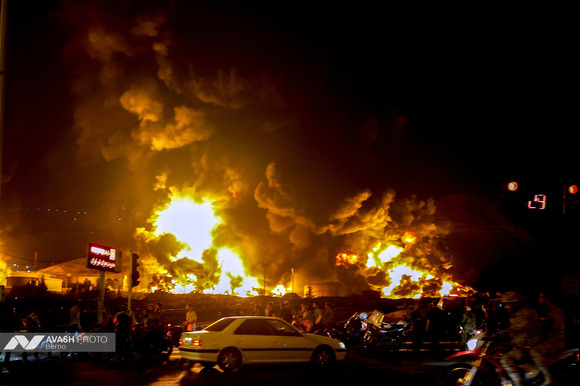As the conflict between Israel and Iran enters its sixth day, former US President Donald Trump is reportedly considering military intervention alongside Israel, escalating concerns of a broader war in the region. According to five sources speaking to CBS News, the US may use its advanced weaponry to target Iran’s underground nuclear facility at Fordo, marking a potentially dramatic shift in Washington’s involvement.
Trump met with his national security team on Tuesday to evaluate strategic options. Despite earlier calls for de-escalation and a diplomatic resolution to Iran’s nuclear ambitions, recent comments by the former president suggest a growing willingness to support Israeli military operations. Trump has expressed deep frustration over the lack of progress toward a new nuclear agreement with Iran, after having withdrawn the US from the 2015 accord during his first term in office.
In a striking post on social media Tuesday, Trump directed a threat at Iran’s Supreme Leader Ayatollah Ali Khamenei. “He is an easy target, but is safe there,” Trump wrote. “We are not going to take him out (kill!), at least not for now. But we don’t want missiles shot at civilians, or American soldiers. Our patience is wearing thin.” Another post read simply: “UNCONDITIONAL SURRENDER!”
Ayatollah Khamenei fired back on Wednesday, warning of dire consequences for any US intervention. “Any form of US military intervention will undoubtedly be met with irreparable harm,” he said. “Wise people who know Iran, its people, and its history never speak to this nation in the language of threats, because Iranians are not those who surrender.”
The standoff comes as Israel and Iran continue to exchange deadly attacks. Since last Friday, the region has witnessed a sharp escalation, with Iranian missiles targeting Israeli positions and Israel retaliating with heavy airstrikes, including recent strikes on Iranian facilities tied to its nuclear and military infrastructure.
US officials have maintained that Iran must abandon uranium enrichment to eliminate the threat of nuclear weapons development. Iran, however, insists its nuclear program is entirely peaceful.
Returning to office after the 2024 election, Trump resumed efforts to forge a new nuclear deal with Iran, but with little progress. Now, his tone appears to have shifted. Speaking to reporters Tuesday during his return from the G7 summit in Canada, he said he was “not too much in the mood to negotiate with Iran,” indicating his growing impatience.
Israeli foreign policy expert Professor Amnon Aran told BBC Radio 5 Live that Trump’s rhetoric signals a major turning point. “We’re definitely the closest we have been to a US entry in the conflict since it began,” he said. Trump’s statements, he added, represent a threshold that would be “very difficult to row back from.”
Others believe the former president could be pushed into action if Iran were to strike US assets directly. Former Israeli ambassador to the US, Michael Oren, noted that a targeted attack on a US ship or base could leave Trump with little choice but to act. Oren also suggested Iran might pursue such a move to provoke American pressure on Israel to negotiate a ceasefire.
Despite his vocal support for Israel, Trump’s approach remains unpredictable. On his return from the G7, he stated his aim was “an end, a real end, not a ceasefire,” just hours after endorsing a joint statement with Western allies calling for de-escalation in the Middle East. His early departure from the summit and subsequent flurry of statements have left observers uncertain of his next steps.
Meanwhile, US Defense Secretary Pete Hegseth announced a bolstering of American forces in the region, citing the deployment of “additional capabilities” to enhance defensive readiness. Though officials denied direct involvement in the conflict, flight tracking data analyzed by BBC Verify showed at least 30 US military aircraft had relocated from the US to Europe in the past three days—an unusual move that has drawn attention. Experts say the relocation of tanker aircraft in particular is rare and may signal preparations for potential engagement.
Analysts believe this may reflect a strategy of “strategic ambiguity”—maintaining uncertainty to pressure Iran into concessions while avoiding an outright declaration of war.
Despite internal divisions among Trump’s advisers about whether to join Israel’s military campaign, dissenting voices have so far remained behind closed doors, CBS reported. Trump’s base is similarly divided. Many supporters backed his 2024 campaign promise to reduce US military involvement overseas, and the former president has repeatedly criticized previous interventions in the Middle East.
Confusion also surrounds the administration’s assessment of Iran’s nuclear capability. Trump appears to believe Iran is close to developing a nuclear weapon, contrary to the stance of his Director of National Intelligence, Tulsi Gabbard, who has publicly suggested Iran is not currently pursuing a nuclear warhead. Asked about the discrepancy, Trump responded bluntly: “I don’t care what she said. I think they were very close to having one.” Aides later insisted there was no disagreement between the two.
No fatalities were reported overnight in Israel from Iranian missile strikes, though more than 50 Israeli fighter jets launched attacks inside Iran. Targets reportedly included a centrifuge facility, a missile production site near Tehran, and a university linked to the Islamic Revolutionary Guard Corps.
Israel remains Washington’s closest ally in the Middle East, and Trump has consistently supported Israeli Prime Minister Benjamin Netanyahu, even as global condemnation mounts over Israel’s actions in Gaza. The fallout from Hamas’s 7 October 2023 attacks on Israel continues to reverberate, intensifying the already volatile regional landscape.
With the rhetoric between the US and Iran hardening and military posturing on the rise, the world watches anxiously as the possibility of direct American involvement inches closer to reality.






